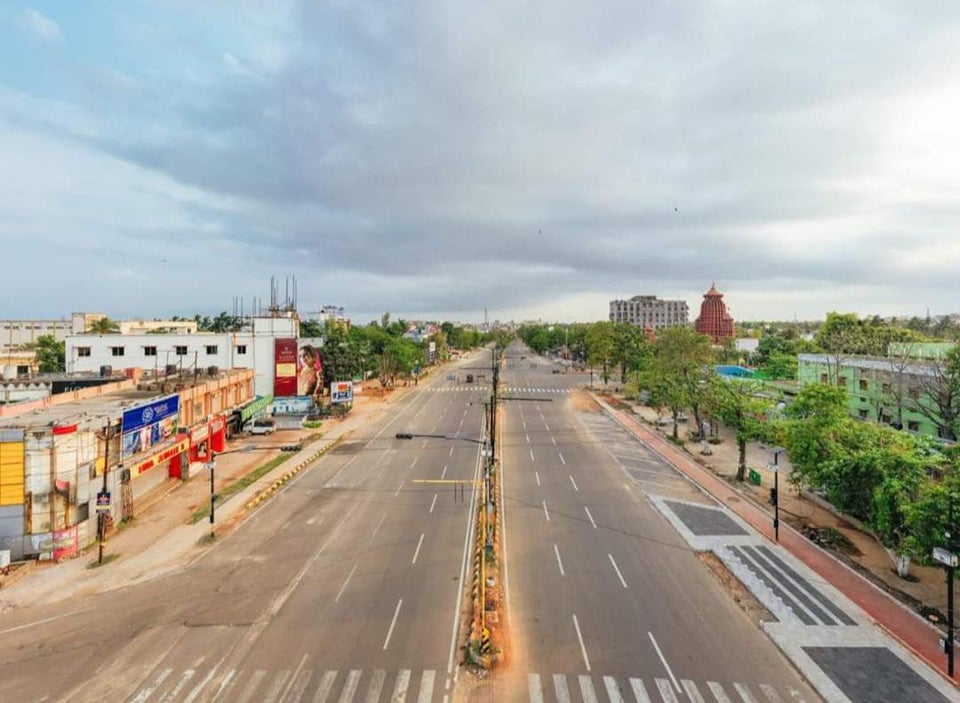Prime Minister Narendra Modi had his fifth video conference with Chief Ministers on Monday, as the final phase of the long-drawn lockdown of the nation ends a week hence. He probably wishes to explore the possibilities of a phased lifting of the lockdown. A complete lockdown of the nation for a longer period may be detrimental, and what is best advised from various quarters is selective action – at least freeing up the over 200 COVID-free districts, forming one-third of the total 720 districts– for activities to resume in a near-normal manner even as they could be kept isolated from the rest of the affected areas.
A total lockdown of the nation since March 24 midnight has virtually paralysed life as also economic activities, affecting industry, agriculture, service sector, aviation as also road and rail communication sectors. To an extent, a lockdown was justified but was totally untimely. The timing was bad because, as written in this column earlier, the infection did not originate on Indian soil but was imported. Therefore, it was vital that flights from other countries, especially those with known high incidences of COVID-19 should have been promptly stopped. That could have slowed the initial penetration and spread of the virus. Then the citizens should have been given ample warning and time to prepare themselves for a long drawn lockout. That time required for dispersal and preparation need not have been more than five days. This implies that the initial call on 20 March for the Janata Curfew of Sunday 22 March could have been better planned. The advance warning for 24 March lockdown could easily have been given on Friday 20 March. Although that would have no doubt created a huge rush, yet, most people including migrant labourers would have had some respite and reached home on time for the 24 March lock. They would probably have been uninfected then since the virus would not have sunk in to the lower economic level at that time. However, dramatics took the trip of this country.
While the number of COVID infections is rising steadily in India, what is also well-acknowledged is that large swathes are fully free of any infection so far. Although, since testing is still very low, it is difficult to ascertain exact numbers.
The other interesting point to look at is this fifth round video conference between the Prime Minister and all Chief Ministers. Scheduled to commence at 3.00 pm and continue till 9.30 pm on 11 May, the discussion will be a stock taking on the COVID-19 issue and decide on the way forward. All CMs are expected to give their opinion but as is well known, the PM will declare what he thinks fit a day or two prior to 17 May 2020. No doubt, conferring with Chief Ministers of all parties, the Prime Minister is setting a good standard of federalism. While praising this act, one is surprised how the apex of all democratic institutions, the Indian Parliament, is being subtly ignored. When the virus attack was to commence, the Parliament session was carried on at a great risk to attending members while the game at Madhya Pradesh continued. When the government changed in that state, Parliament was abruptly shut. While it would be unwise to summon another session at this critical time, yet it would be wise for the Prime Minister to also confer with all party leaders in both Houses of Parliament. Now it seems as if both Lok Sabha and Rajya Sabha are not only irrelevant but may be considered repugnant in context to the present crisis. It is important to understand that in such a massive global crisis, no political leader can have a clear idea about the path forward. Since the PM has completely neglected the parliamentary protocol of which he is a creation himself, it has suited the CMs too and none of them have been reported as having connected and discussed the economic and health issues with other party leaders in respective Legislative Assemblies.
The time being what it is, we mere citizens have no scope to voice different opinions for our leaders to listen to. The political bosses probably consider citizens as cacophonous. Instead of getting too many bright ideas and being confused, they have probably agreed to operate without any ideas.

